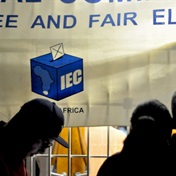
The country recently witnessed the health worker strikes by members of the worker’s labour unions in Gauteng and the impact it had on access to health services.
The health workers’ anger had been brewing due to poor management’s response to their cries. It is alleged that health workers had not received their bonuses and overtime remuneration for two years and it is claimed that managers were silent about the issue at hand.
This is contrary to the laws governing employer-employee relationships and at the same time stipulating the rights and duties of both parties.
On May 1 2018 a warning was sent out in a local newspaper about an upcoming strike but the Gauteng health department reassured the public that all services would be operating as usual.
Management failed to communicate with the workers about the unpaid bonuses, the department’s financial challenges, how and when the workers will receive their bonuses and overtime pay.
In this case, the workers’ disappointment was justifiable but not the manner of displaying their disappointment and anger.
Undoubtedly the workers were determined to achieve their goal at any cost including prevention of access to healthcare.
On May 31 roads leading to a Johannesburg hospital were closed, surgical procedures cancelled and the entrance to the facility was blocked with ambulances, which ironically, are supposed to bring the injured and sick into the hospital.
Patients were chased out of the hospital and the hospital floors trashed.
A member from a trade union, Nehawu, was quoted saying: “We are not going to allow anyone in or out. We have decided that the workers should not continue to serve the interests of the employer without getting what’s due to us.”
Some patients were denied food and prevented from accessing medicines from the hospital pharmacy.
According to the Constitution, workers have a right to strike and this comes with a corresponding responsibility to refrain from violating other people’s rights, especially the vulnerable members of the society.
State health workers serve the public on behalf of the government and they have to account for their actions to their employer and other relevant institutions.
Health is a basic human right
Health should be approached as a human right, provided with dignity to vulnerable patients. It is not a luxury for those with deep pockets but a right to be enjoyed by all citizens.
The protests interfered with the rights of the patients to access health care thus compromising their health.
The impact is not just limited to access to care but the quality of care provided in the circumstances, early discharge, and in the worse scenario, it may have led to deterioration of health and even premature death.
Premature discharge of patients from hospitals brings anxiety to the patients and their families. Patients have to worry about their health, which might deteriorate at home.
On the other hand, family members worry about their loved ones’ wellbeing and their own limitations when it comes to looking after their sick family members.
Undoubtedly, besides the stated psychological impact, there is a related economic impact where services have to be sought from private health service provider and additional travel costs, to name a few.
This contributes to substantial impoverishment of the patient and their families.
These actions bag the questions: Who should be held responsible for the violation of the rights to access health, dignity, freedom of movement and safety of patients and other health workers?
We have seen in the soccer fraternity where clubs get fined for the misbehaviour of their supporters.
Should the same principle not apply to the trade unions for the actions of their members, which include violating human rights and causing harm to other people and property?
Critically, it is the government’s responsibility to protect the violation of other people’s rights and to act against violations.
Whose moral and legal duty is to protect the rights of vulnerable patients?
Health workers provide an essential service that should be preserved. Both health professionals and non-professional health workers have a legal and moral duty to provide care and protect patients and their colleagues’ rights.
The government also has a duty to protect rights of individuals from being violated by others.
Furthermore the government has the obligation to govern ethically and not exploit employees.
The public sector provides services to the majority of the South African population and most of these patients are not members of medical schemes.
According to the household survey conducted in 2016 and cited by Stats SA, 82 in 100 South Africans do not have medical aid excluding those who indicated that they don’t know if they have medical aid, and those classified as “unspecified”.
This means that the private sector is not an option for circumventing barriers created by health worker strikes. Sadly, some of the patients will have to pay for private care from their own pockets and more often, crowd-funded by contributions from various family members and friends.
Majority, if not all, state health workers are members of medical aids, have access to private health service providers and obviously are not affected by their own protest actions.
This makes their actions unjust towards vulnerable people who are either accidental victims or are used as tools to send a message to the authorities.
Patients should not be used as a means to an end.
As South Africans, we ought to uphold principle of Ubuntu and these don’t entail objectifying people of a lower social and economic status.
These actions will make a mockery of our democracy should the department fail to enforce accountability to those responsible for blocking access to health services, intimidation, and damaging hospital property.
One wonders, how many health workers are suffering from post-traumatic stress disorder and other psychological ailments for being helpless and unable to provide the care that was needed by patients?
Does the end justify the means in this case? The right to strike is not absolute hence health services are categorised as an essential service.
The lack of accountability following violation of human rights and damage to property will fail health service users and other stakeholders. Such strike actions have negative financial impact resulting from replacement of damaged property, delayed medical interventions leading to higher future medical costs, post-traumatic stress disorder affecting health workers and professionals, to name a few.
Health workers that fail to provide patient centred services and a department that fails to uphold the law stains the integrity of country’s public health system.
The nation is still traumatised by the Life Esidimeni tragedy. Importantly, most public sector patients are deemed vulnerable because they are solely dependent on the state and its agents to provide for their health care needs.
Individuals are equal before the eyes of the law and ethically, the most vulnerable deserve even more protection of their rights.
Leadership is a responsibility hence the expectation for employers and labour union leaders to enforce consequence management, and discipline.
There is a need for health worker labour unions to understand the impact of violent strikes, vulnerability of patients and the moral duty of not treating patients as a means to an end in the event of labour disputes.
There is no doubt that ongoing training on ethics and human rights should be provided to managers, labour unions, health professionals, and the rest of the health workforce.
The department’s employees have a moral and legal obligation to protect the dignity and rights of others.
Concurrently, employees have the right strike whilst upholding other people’s rights, a right to exhaust alternative dispute resolution mechanisms and as a last resort, take legal action against the department when their rights are threatened or violated.
» Dr Brenda Kubheka and Nomfundo Maseko are from Health IQ Consulting, which does quality management, clinical risk and lean methodology training programmes and consulting services in the health sector.




 Publications
Publications
 Partners
Partners








